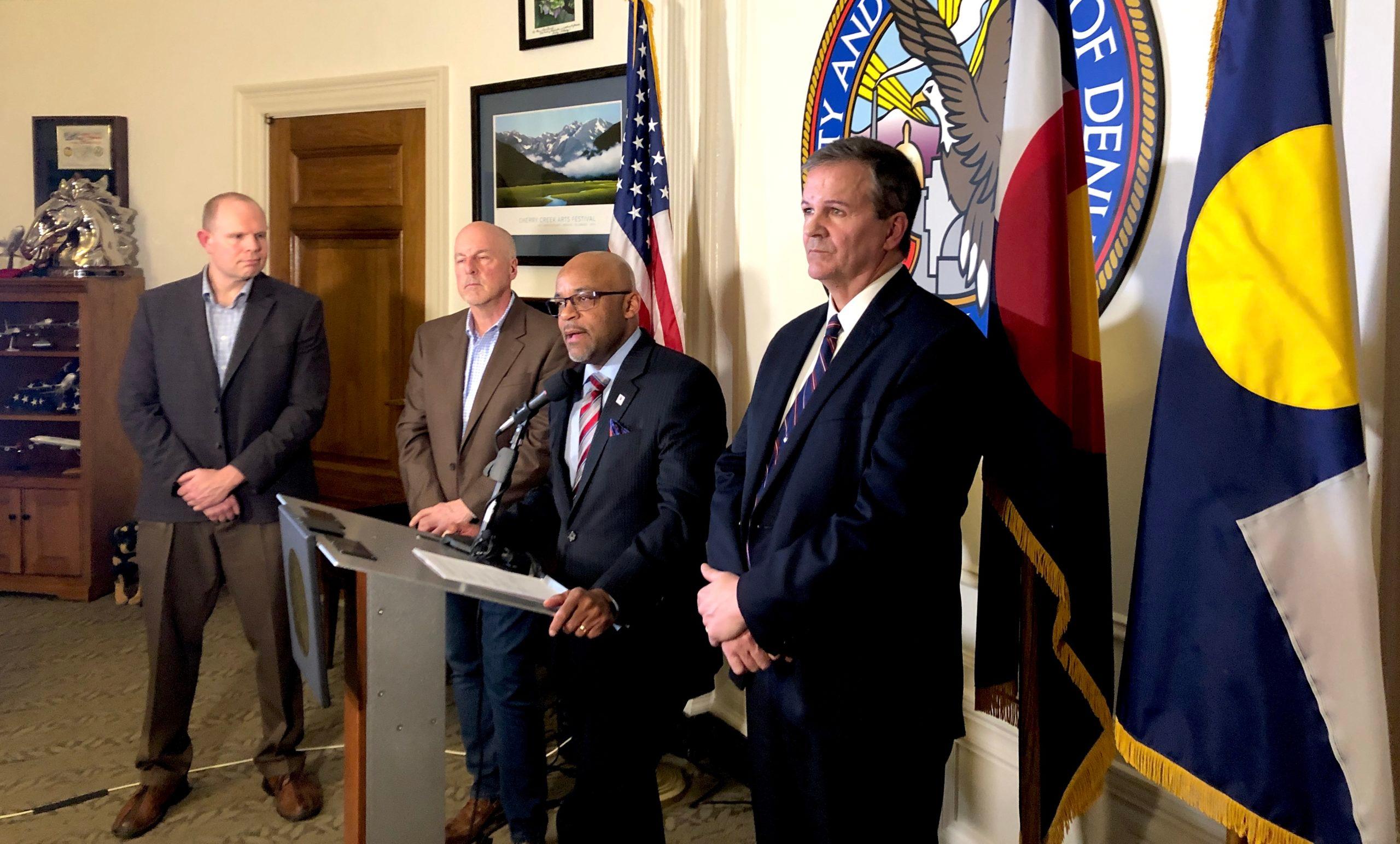Testing. Masks. And social change.
These are among the concerns of advocates for people most vulnerable to COVID-19 as Denver and the rest of Colorado consider easing some of the restrictions that have helped slow the spread of the new coronavirus.
"We are feeling very nervous about lifting stay-at-home until we have more widespread testing," said Cathy Alderman, vice president of communications and public policy for the Colorado Coalition for the Homeless.
People experiencing homelessness are at risk of suffering the worst from COVID-19, the disease caused by the novel coronavirus, because many are older and have underlying health conditions and immune systems that have been weakened by the stress of living without housing.
This week, a large shelter for women opened at the Denver Coliseum that allows for more space between guests. A large shelter for men opened earlier this month at the nearby National Western Complex. The Colorado Coalition for the Homeless has been testing for the coronavirus at the new shelters, drastically scaling up its efforts to determine who might be carrying the disease. But Alderman said more is needed. The coalition was among 57 organizations across the state that signed a letter sent to the governor Monday calling on the state to support people experiencing homelessness, and for more resources for testing and for shelters residents to be a priority for testing.
"We are just now able to screen and start testing people in these congregant settings, so signals that things should go 'back to normal" could disrupt that process," Alderman said.
Gov. Jared Polis has described a gradual emergence from the coronavirus state of emergency, saying that when the statewide stay-at-home order expires on Sunday it will be replaced with a safer-at-home strategy.
Everyone is strongly advised to wear face masks in public, and older residents and at-risk people should still stay at home unless it's absolutely necessary that they leave. Strict restrictions would remain on nursing homes.
Colorado counties will be able to set their own schedules for easing restrictions on travel and gatherings. Denver's stay-at-home order is set to expire April 30, but that may be extended. Mayor Michael Hancock has said that when Denver does reopen, the process will be "slow, phased and controlled."
Robert Brocker, president of the Colorado Senior Lobby, is concerned the go-slow message will be lost and people will rush to return to normal, "ignoring all caution."
According to the Centers for Disease Control, eight out of 10 coronavirus deaths reported in the U.S. have been people at least 65 years old. Brocker, who is 71, said he already sees many people in Washington Park, near where he lives, without face masks.
"We're all at the mercy of each other," Brocker said.
Brocker worries about a coronavirus resurgence. He understands concern, though, about the toll the stay-at-home and social distancing are taking on the economy. He said it is natural to embrace talk of lifting restrictions.
"People were looking for something to make them feel better," he said. "So, we have it. And hopefully we don't squander it."
Ronica Rooks, an associate professor in the Department of Health and Behavioral Sciences at the University of Colorado Denver, said older people need to continue to practice social distancing, but that that may be harder as Colorado moves to safer-at-home.
"I'm not sure if stores will continue to have lower risk times for seniors to shop or if they will continue to limit the number of shoppers in a store at one time. This also raises concerns for me about whether seniors will have lower risk times to visit healthcare facilities as well," said Rooks, whose research focuses on adults and older adults and racial and ethnic disparities in their health conditions.
Terri Richardson, vice chair of the Colorado Black Health Collaborative, worries about the messages people are getting.
"If you don't keep pressing and letting people know that this is serious, it will go the back of minds," said Richardson, who is a doctor. "There's not a vaccine -- it's at least a year or more away. There aren't great treatments. You have to avoid getting it."
Richardson called on employers to ensure their employees have masks as well as gloves and other protective equipment as Colorado returns to work.
"Employers should provide -- not just tell people to make their own masks," Richardson said.
Jerene Peterson, chief impact officer of Mile High United Way, said low-income Coloradans have been especially vulnerable to the economic fallout of the coronavirus slowdown. Meeting their needs as they return to work requires considering issues like whether childcare is available in low-income neighborhoods, especially considering that schools remain closed.
Mile High United Way on Monday announced it was distributing $1 million in emergency grants to community organizations in the metro Denver and Boulder areas to support food security, rent and utility assistance and senior services. About $200,000 was going to childcare providers.
"All of us will be a little nervous about reopening," Peterson said, saying working with community groups ensured the right kind of help was being offered as economic activity increases.
"We listen to what people need," she said.
Service industry workers who deal with the public are especially vulnerable, and blacks and other minorities often fill such jobs, Richardson said.
The CDC has found that a third of the people who have been hospitalized because of COVID-19 are African American, who make up only 13 percent of the U.S. population. After generations of racism and economic disparities have lead to unequal access to health care, African Americans compared with whites have a higher prevalence of diseases that can make COVID-19 deadly such as obesity, high blood pressure and diabetes.
"Health systems are going to have to look at, 'How do we look at implicit bias and racism?'" Richardson said. "This crisis is just giving us opportunities to look at this again. Now there seems to be a renewed energy to think about what we can do."












